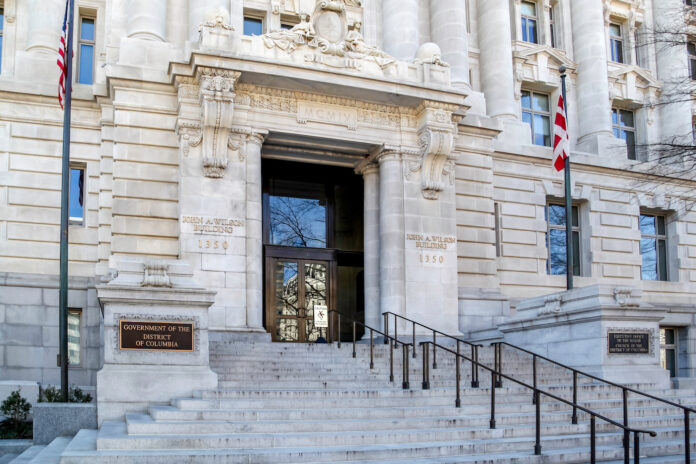WASHINGTON, D.C. – Lawmakers in the capital are moving forward with a revised medical marijuana bill poised to make significant business-friendly changes to local regulations, including tax deductions.
“Rather than make technical and minor changes to the bill as introduced, the Committee Print [revised bill] takes a more holistic approach by making it easier for patients to access medical cannabis, removing unnecessary caps and restrictions on the number of licenses, and prioritizing equity for new licenses, among many other amendments to the statute. In the Committee’s view, these changes are necessary to provide relief to patients, business owners, and people from marginalized communities who have been previously excluded from the medical cannabis market.”
The District Council’s Committee on Business and Economic Development approved the Medical Cannabis Amendment Act Tuesday, which would codify self-certification to become a medical marijuana patient for anyone 21 years and older and allow businesses to deduct taxes related to business expenses currently prohibited under section 280E of the Internal Revenue Code. Specifically, the bill “allows a licensed medical cannabis business for the purposes of District taxes any federal income tax deduction that is disallowed by Internal Revenue Code § 280E.”
If passed, business owners will be able to deduct expenses such as salaries, travel expenses, rental payments, etc. from their taxable income and lower their District tax burden.
The proposed bill would go beyond simply removing the cap on licenses and restrictions on the number of cultivation centers and dispensaries to expand the industry with a focus on social equity.
According to the bill, “Black District residents have borne the brunt of the war on drugs, making up roughly 90 percent of all cannabis arrests since 2001 despite using cannabis at similar rates as white residents. The negative consequences of these arrests, and any subsequent convictions, are manifold… To rectify this, the Print [revised bill] makes several notable changes to the introduced version that will increase opportunities for business ownership and entrepreneurship for low-income and formerly incarcerated Black District residents.”
Those opportunities include a pathway to licensure for individuals and applicants who have family members with a recent cannabis or drug-related offense. The bill also adds maximum income thresholds for some social equity applicants.
To address unlicensed operations and local “gifting” services skirting regulations, the bill creates a formal process for unregistered businesses to enter the medical market through a transitional license.
Interested businesses would need to submit a transitional license compliance plan and participate in three technical assistance workshops within 30 days of receiving a transitional license. Updated language in this version of the bill allows unregistered establishments to apply for retailer, internet retailer, and cultivator licenses. Unregistered establishments entering the regulated medical cannabis market will also need to meet the equity goals of the permanent medical cannabis program. This is the first time a jurisdiction has attempted to provide a legal pathway for businesses operating in the unregulated market.
For businesses that refuse to join the regulated market, the new bill allows the mayor to seal the premises, issue fines of up to $20,000, and revoke basic business licenses. The mayor also would be able to levy civil fines of up to $10,000 against commercial property owners allowing illegal cannabis-related activity to occur on their premises.
The initial bill was introduced February 26, 2021, by Council Chairman Phil Mendelson (D) at the request of Mayor Muriel Bowser (D). Public hearings followed November 19, 2022, and after multiple rounds of committee mark-ups, the bill was filed this week. The bill will need to make it through the Committee of the Whole before it’s up for final approval by the District Council.











